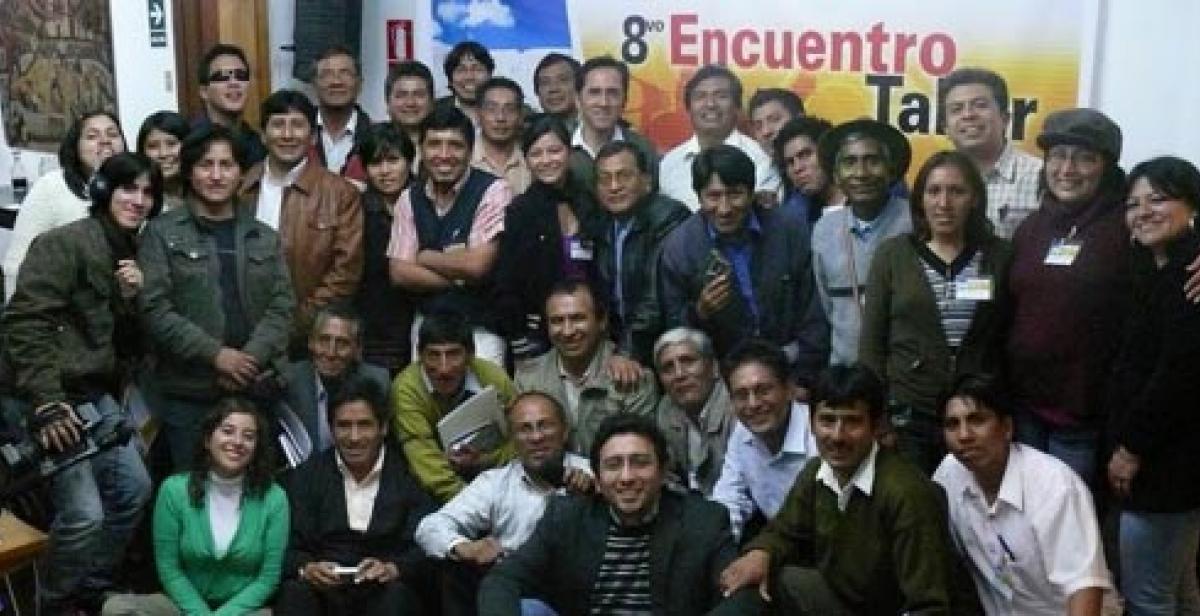Mining in Peru is often not good news for its people. It contaminates natural resources and causes social conflicts across the country. But this bad news only makes the front page when it's catastrophic: 'Oil spill in the Marañon River', 'Fear for contamination from toxic mining spill in Huancavelica'. The rest of the time, these practices and events go by unheard.
The locals are not consulted before the companies invade their territories and contaminate their natural environment. Everyday a new disaster occurs that could've been prevented by informing the people, allowing them to take part in decisions and taking into consideration their profound knowledge of the natural environment in which they live.
According to the Peruvian ombudsman, more than 50% of social conflicts in Peru are triggered by disagreements on the distribution and use of natural resources and other environmental issues. One such was in Bagua in the Peruvian Amazon jungle region, where a bloody confrontation between the police and indigenous communities in June last year left 33 dead, and prompted renewed calls for a law to protect the rights of indigenous people, and ensure they are consulted on matters that affect the natural environment in which they live and their well-being.
It seemed that, at last, these calls were being heard, when the Peruvian congress finally passed the 'Ley de Consulta Previa' (Law of Prior Consultation) in May this year.
But what should have been a reason for celebration, after years of waiting for a law which establishes the right of native peoples to be consulted on matters affecting their territories, turned out to be another disappointment. June 21st was the deadline for ratification, and only late that day did the news finally spread: the law was not promulgated by the president who expressed his fear that it could endanger the economic development of the country.
What does the president mean by that? Well unfortunately he refers specifically to the interests of the state and the private sector, who are both concerned about giving the indigenous population of Peru the right to be consulted before private investment projects will be authorised in their territories. Most extractive industries are based in indigenous territories and the government sees it as a threat to give one third of the Peruvian population a voice in territorial affairs.
The official statement clarified that the rural communities of the Andes and the coast are not considered as indigenous people. This intensifies the feeling that the Peruvian government is not willing to make important decisions to assure the right of a significant part the Peruvian population to be consulted about what is being done to the natural environment in which they live. The president's observations also suggested that the government would reserve the right to have the last word whatever the outcome of the consultation process.
More than a year has passed since the events at Bagua while the indigenous people and human rights organisations are still waiting for the law the government promised them during the reconciliation process. In the meantime big contracts are being signed between private investors from abroad and the government. At the same time the rights of indigenous populations are being undermined all across the country, not only in the Amazon.
Hopefully it will not be long before the Peruvian government will finally approve the law of prior consultation which will definitely be an important step to initiate and demand a dialogue with the government on these affairs. Nevertheless it will continue to be an important task of the indigenous organisations, NGOs such as CEPES as well as human rights organisations at the local, national and international level, to protect the rights of the Peruvian population to be consulted and to make this a national priority.
Cindy Krose is a Progressio development worker working with CEPES, the Peruvian Center for Social Studies. Cindy works with CEPES's communications team which produces radio programmes and videos on the need for a law for prior consultation and spreads the latest news and information through a national daily radio programme as well as distributing the materials to local radio stations throughout the country, including through the RIA, the Agrarian Information Network of local radio stations.
Photo: Participants at a meeting of the RIA (Agrarian Information Network of local radio stations) to discuss the Law of Prior Consultation (photo: Cindy Krose/Progressio).



